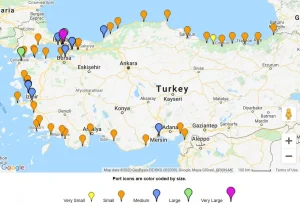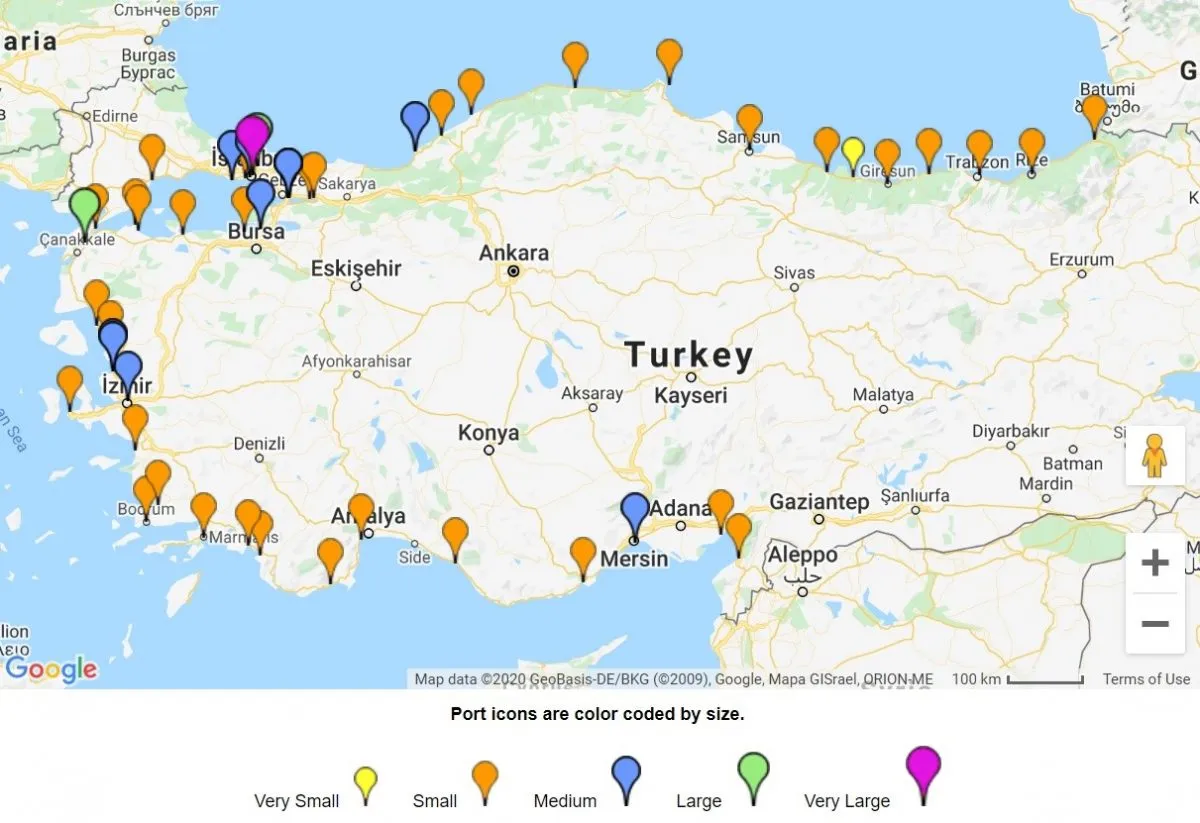
08/28/2025
Navigating Troubled Waters
Turkey has significantly escalated its maritime restrictions against I.srael-affiliated vessels, implementing stringent new measures that effectively block ships with I.sraeli connections from using Turkish ports. These restrictions, which began enforcement in late August 2025, represent the latest development in the ongoing diplomatic tensions between Turkey and Israel that have intensified since the Gaza conflict began in 2023. The new requirements compel shipping companies to provide comprehensive declarations about their vessels’ affiliations and cargo, creating substantial operational challenges for international maritime trade in the Eastern Mediterranean region.
New Restrictions and Implementation
Turkish port authorities have implemented a multi-layered approach to restricting maritime access for I.srael-linked vessels. Shipping industry sources confirm that the new measures require ship operators and agents to submit written declarations confirming that their vessels have no ownership, management, or operational ties to I.sraeli entities. Vessels must also certify that they are not carrying military equipment, explosives, radioactive materials, or other hazardous cargo destined for I.srael.
These requirements are being enforced despite the absence of an official government decree. Harbor masters across Turkish ports have verbally instructed shipping agents to comply with these new regulations, creating ambiguity about the precise legal basis for the restrictions. The measures apply comprehensively across Turkish ports and extend to Turkish-flagged ships, which are now prohibited from calling at I.sraeli ports.
Impact on Shipping Operations
The practical impact of these restrictions became immediately apparent when major Israeli container shipping companies confirmed that Turkish authorities had turned away their vessels from Istanbul’s port. Affected ships were forced to divert to alternative Mediterranean ports, leaving cargo intended for Turkish markets stranded and requiring complex logistical solutions.
Major international carriers are seeking clarification on how these restrictions will be implemented and whether exceptions might apply in certain circumstances. The shipping industry is particularly concerned about the requirement for vessels to declare they have no business dealings with Israel, as this affects not only Israeli companies but also international carriers that regularly call at Israeli ports.
Context of Deteriorating Turkey-Israel Relations
These maritime restrictions represent the latest escalation in tensions between Turkey and Israel that have been deteriorating since the outbreak of the Gaza conflict in October 2023. Turkey had already suspended direct trade with Israel earlier, cutting off what had been a substantial annual trade relationship.
Turkish leadership has framed these measures as part of Turkey’s response to Israel’s military operations in Gaza. Despite the official trade ban, trade statistics indicate that Turkish exports continued to reach Israel through third countries, suggesting that trade has continued through indirect routes with Turkish exports often being rerouted through neighboring countries before ultimately reaching Israeli markets.
Regional Maritime Implications
Turkey’s restrictions on Israel-linked shipping occur against a complex backdrop of regional maritime disputes and environmental regulations. The Eastern Mediterranean has become increasingly contested waters, with Turkey engaging in longstanding disputes with Greece over maritime boundaries and exclusive economic zones.
Simultaneously, Turkey has implemented new environmental regulations for vessels in its waters, including stricter pollution fines and the designation of the Mediterranean Sea as a Sulphur Emission Control Area requiring low-sulfur fuels. These regulatory changes add another layer of complexity for shipping companies navigating Turkish waters amid the geopolitical restrictions.
Economic and Operational Consequences
The new restrictions pose significant challenges for global shipping lines that regularly transit between Israeli and Turkish ports. Industry analysts note that the requirements could force carriers to establish more complex routing patterns, potentially increasing costs and transit times for cargo moving between Asia, Europe, and the Eastern Mediterranean.
Major shipping companies have acknowledged that these restrictions are likely to negatively impact their financial and operational results if maintained long-term. The challenging market conditions in the region have already affected shipping company revenues, reflecting the broader economic impact of these geopolitical tensions.
Legal and Diplomatic Considerations
The legal basis for Turkey’s restrictions remains somewhat ambiguous, as they have been implemented through verbal instructions rather than formal published regulations. This informal approach has created uncertainty for shipping companies seeking clear guidelines on compliance.
From a diplomatic perspective, these measures represent a significant deterioration in Turkey-Israel relations that had only recently been normalized after a multi-year hiatus. The Israeli government has not yet issued a formal response to the latest maritime restrictions, though previous Turkish trade measures drew strong criticism from Israeli officials.
Future Outlook and Industry Adaptation
Shipping companies are developing mitigation strategies to address these new challenges, including potentially increasing transshipment operations through alternative Mediterranean ports. The industry is also monitoring whether other countries might implement similar restrictions, following other nations’ decisions to bar Israeli shipping.
The long-term impact will depend on whether Turkey maintains these restrictions indefinitely or modifies them based on changing diplomatic conditions. Turkish leadership has conditioned the resumption of normal trade relations on Israel agreeing to a permanent ceasefire, suggesting that the maritime restrictions are likely to remain in place until significant political changes occur in the Gaza conflict.
Conclusion: Navigating a New Geopolitical Reality
Turkey’s restrictions on Israel-linked vessels represent a significant development in the geopolitical landscape of Eastern Mediterranean shipping. These measures have immediate practical consequences for maritime operations while reflecting broader regional tensions and conflicts. Shipping companies must now navigate an increasingly complex regulatory environment that blends environmental requirements with geopolitical restrictions, creating new challenges for global trade routes through this strategically important region.
The situation remains fluid, with the potential for further developments as diplomatic relations between Turkey and Israel continue to evolve. The shipping industry’s ability to adapt to these new realities will be crucial for maintaining efficient trade flows in the Eastern Mediterranean amid ongoing geopolitical tensions.
References
-
Turkey was the 5th largest exporter to Israel in 2024 despite trade ban: UN data
-
Turkish ports raise new barriers to Israel-linked ships, sources say
-
ZIM reroutes vessels after Turkey bans Israel-linked ships, company says
-
Are Trump’s tariffs unlawful? A court case kicking off this week could reshape his trade strategy
For ongoing coverage of maritime trade restrictions and geopolitical developments affecting global shipping, subscribe to our newsletter or follow us on social media.


hiI like your writing so much share we be in contact more approximately your article on AOL I need a specialist in this area to resolve my problem Maybe that is you Looking ahead to see you
Excellent blog you have here but I was curious about if you knew of any user discussion forums that cover the same topics discussed in this article? I’d really love to be a part of group where I can get advice from other knowledgeable individuals that share the same interest. If you have any recommendations, please let me know. Thanks a lot!